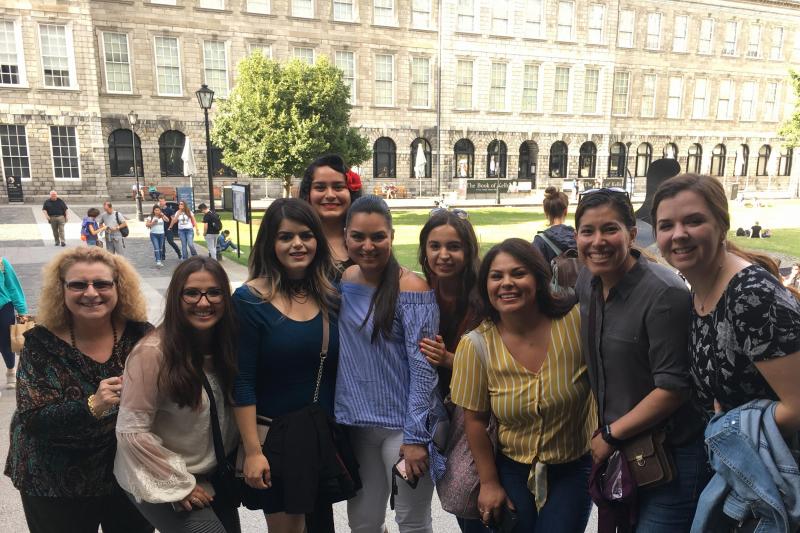
More than 116 people died from opioid-related drug overdoses every day in 2016 and 2017 according to the U.S. Department of Health and Human Services.
The opioid crisis began with widespread use of prescription painkillers, the HHS says, noting an estimated 8 to 12 percent of patients prescribed opioids will develop an opioid use disorder. For some people, it takes only five days on opioid-based painkillers to become addicted, Whitehead said, adding addicts have a particularly hard time quitting. “Opioid withdrawal is one of the most awful withdrawals you can have. It’s like a horrible flu, times 1,000.”
Insights from their research changed the students’ understanding of addiction. “Being part of Dr. Whitehead’s research gave me a new perspective. I became more open-minded about working with addicts and families struggling with addiction,” said graduate student Tara Vargas, who will graduate in May with a school counseling credential and qualified as a clinical counselor.
Yaira Aguilar said the experience opened her eyes to how addiction touches people from every walk of life. “In the places we pass by every day, there are people dealing with addiction,” she said. “Sometimes we look past addicts, put them aside. But their troubles are going to have an effect on us. It’s a real problem in our community. In the long term, it affects us all.”
The Turlock students spent the spring semester studying the roots of the opioid crisis, physiology of the addiction and clinical efforts to combat it, presenting their findings to qualify as presenters at A Counselor’s View of Ireland Institute held in Dublin July 30-Aug. 10. All will graduate this spring with master’s degrees in counselor education.
In Dublin, sessions with Irish and American speakers alternated with tours of Irish cultural sites and mental health facilities. The institute, organized by faculty of the University of Holy Cross in New Orleans, partnered with the Irish Association for Counseling and Psychotherapy for a one-day conference within a conference. The Stan State students’ presentation was one of about a dozen given through the day. While the workshops were open to all, most of the 33 Americans attended Irish presentations and the 150 Irish attendees went to hear the U.S. speakers, Whitehead said.
How opioid abuse took hold in America and methods clinicians have developed to treat abuse was of keen interest to the 60 or so Irish counselors in the audience, Whitehead said.
“Ireland has a higher rate of alcoholism, but not as much opioid addiction as in the U.S. They were fascinated by our research,” said Whitehead, who teaches classes in addiction and counseling. “At the conference our Stan State students were able to greatly hone their proficiencies in working with clients and counselors from other cultures.”
Knowing they would be presenting to professionals proved an incentive to learn everything they could, students said.
“I had to be confident in what I was presenting, which was professional development for the counselors attending the conference,” Vargas said. “It’s not every day we as graduate students get to present our research to professionals and know we taught them something.”
The group will share their work and the experience with other graduate students in the Stan the Stan State counseling program this fall.
“Presenting at an international conference gave us the opportunity to learn from other counselors not only from Ireland, but from across the United States,” student Araceli Hernandez said. “It gave us new perspective on how counseling is different in every region, and emphasized how we all strive for the same goal to help our clients recover from the trauma they are experiencing so that they can flourish in their lives.”